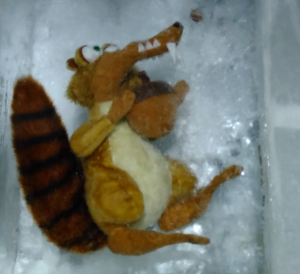 Stress is a common notion. Today, we even consider it as an inseparable aspect of our lifestyle. We may feel proud of it, as if the fact of being busy and stressed automatically translate in a successful self-image.
Stress is a common notion. Today, we even consider it as an inseparable aspect of our lifestyle. We may feel proud of it, as if the fact of being busy and stressed automatically translate in a successful self-image.
The experience of being stressed was – and still is – considered as normal as drinking coffee at breakfast 🙂 But if you had the chance to live a peaceful lockdown during the Covid crisis, as I had the privilege to do, you may have reconsidered it. Because actually, a life with more time, no running around and a lot of calmness it is very pleasing.
Even if we tend to forget it, we know that ongoing stress has a negative impact on our health. The problem is that, today, we receive so many inputs that it is even difficult to recognize what is stressing us. It is not easy to experience a “no stress status” : even during holidays, we tend to be reachable and reactive. We never stop.
Becoming more aware about ourselves helps us to better deal and better understand our own stress factors, it means what are the situations, attitudes and behaviors that will enhance and maintain the stress responses inside our system.
How do you become more aware of your stress factors?
This questions deserve many different answers including through relaxation, meditation, life-style changes – by instances distancing, for some hours, from your smartphone. But today I would like to reflect with you on one aspect that you may not have yet considered. Did your stress start already during your childhood?
This question may, quite understandable, surprise you. Although it is easy to connect stress to the inputs you receive from the outside world, your stress responses are also influenced by your early experiences. These experiences participated shaping your perceptions of the world and others. When the closer relationships that a child needs are somehow missing or too distant or too disrupted, this creates a stress reaction in the body of that child that will influence how he will deal with stress as an adult. Because for this child his stress was “normal” and he could not compare it with anything else, it may be difficult for the future adult to realize that stress started to be part of his life an a early stage.
Chronic tensions or anxiety, for example, indicate a state of stress. As well beliefs who influence how we navigate in life.
If you are interested in exploring when your stress reaction started, I suggest you go through the following series of questions:
- Can I say “no” – can I say this is too much for me?
- Do I have to be always strong/independent?
- Do I tend to minimize or maximize potential threats to my well-being?
- Do I perceive myself as alone or isolated?
- Can I get angry? Do I authorize myself to express my anger?
- Do I feel easily responsible for others?
- Do I feel easily overwhelmed?
- Do I believe that I’m not wanted, I’m not lovable?
- Do I believe that I need to justify my existence by doing something useful?
- Am I often ill or in a weak position/situation – so to receive other people’s attention?
In your personal history, when did it start? There is a situation that comes naturally in your mind?
If yes, take notice on how this continues to have an impact on your daily life.
Gaining more awareness of your stress factors, will help you to modify your stress response, the effects of it on your relationships, in your life and in the way you are in your body.
If you wish to modify the impact of this stress factors, I will be happy to support you! Also you find here some ideas about how to change the beliefs you identify.
Picture taken at the Jungfraujöch
The inspiration for this article comes from Gabor Maté “When the bodies says no – The cost of hidden stress”.
G. Maté is a Canadian medical doctor who works to bring back in the medical field the importance of the personal history of a patient. The personal experiences and the general attitude have an impact on the diseases we develop, apparently especially on the auto-immune diseases. What is going on in the patient life, what are its stressors today or what hard moments the patient experienced in the past are precious information in the understanding of the disease and on its treatment.